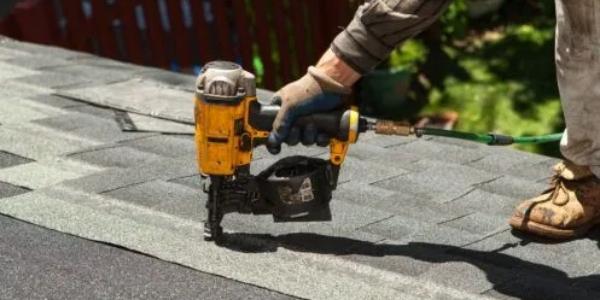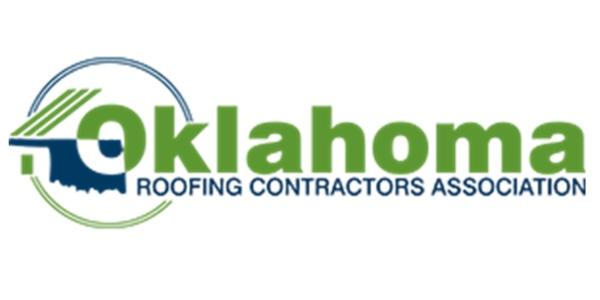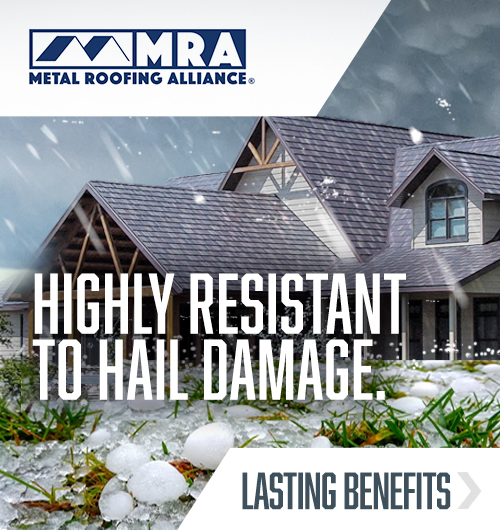Hurricane Season Survival Guide

By Lauren White.
Weather storm season 2022 and keep a roof over your heads with these tips.
2021 was a whirlwind year for hurricanes and tropical storms. Colorado State University (CSU) predicts that 2022 will also be an above-average hurricane season. These predictions are based on models that use 40 years of historical data and evaluate conditions like sea level pressures, sea surface temperatures, El Niño and more. The CSU team anticipates that the U.S. will experience nine hurricanes, with four of them being major hurricanes!
Not only do these storms wreak havoc on the landscape, but also on homes and buildings. And roofs are no exception. These extreme weather events leave many people without roofs or with significant roof damage, which is when you turn to the experts. Here are a few ways you can prepare for this upcoming storm season.
Establish relationship with contractor now
It’s likely that building owners don’t think about their roof until it needs replacing or repairing. Establishing a relationship with a local contractor now, before storm season hits, will pay off in the long run; having someone to turn to for regular roof maintenance, roofing-related questions and after a disaster strikes is invaluable.
Be wary of traveling contractors
Another reason to establish a good relationship with a contractor is to avoid being approached by a traveling contractor, sometimes referred to as “storm chasers.” While these roofers can be beneficial to help share the workload in highly affected areas, they can sometimes prove to be troublesome down the road. There are some risks to using a contractor who isn’t local – they don’t have a reputation to uphold and can provide substandard work or charge building owners upfront and never return to repair or reroof their building.
Insurance
Double check your insurance policy. It’s not uncommon to need multiple insurance policies to cover damages – wind, water, etc. – that could occur due to hurricanes.
After the storm has passed, have a contractor walk the perimeter of your building to assess the roof damage. By documenting the damage, noting the severity and taking photos, they’re providing information that will be critical in the event you need to file a claim to help cover repairs.
Choose a roof that will last
If the damage to your roof is too severe to repair, consider choosing a roof that will last. Building codes and standards are developed by independent laboratories and industry groups, which roofing manufacturers must adhere to. These codes and standards are updated on a regular basis to ensure buildings are protected. According to the Insurance Institute for Business and Home Safety (IBHS), “design wind speeds are much higher along coastal areas of the hurricane-prone regions...The design wind speed is used directly in the selection of roofing products and their installation specifications.”
As the codes have been adapted throughout the years, so too have roofing materials. And while these materials are better able to withstand the extreme elements they’re exposed to – fire, wind, hail, snow – some materials are more suitable for hurricane-prone areas than others due to their high wind resistance, like Duro-Last. The custom-fabrication of each roof means 85 percent of the seams are completed before the system arrives on the jobsite, ensuring a quality weld that stands up to wind*.
Duro-Last's single-ply commercial roofing systems are designed to be watertight, resistant to a variety of chemicals, fire and high winds* and low maintenance, making them an ideal system for busy building owners who are in regions where hurricanes are prevalent.
Weather the storms this season with these tips.
Have a question? AskARoofer.
Find your local roofing contractor in the RoofersCoffeeShop® Contractor Directory.
*Specific wind load information can be found on the Duro-Last website, or by calling 800-248-0280.
About Lauren
Lauren is the editor for RoofersCoffeeShop and AskARoofer™. When she’s not writing or Googling roofing terminology, she's adventuring with her puppy Kira and watching sunsets. Learn more about her here.










Comments
Leave a Reply
Have an account? Login to leave a comment!
Sign In